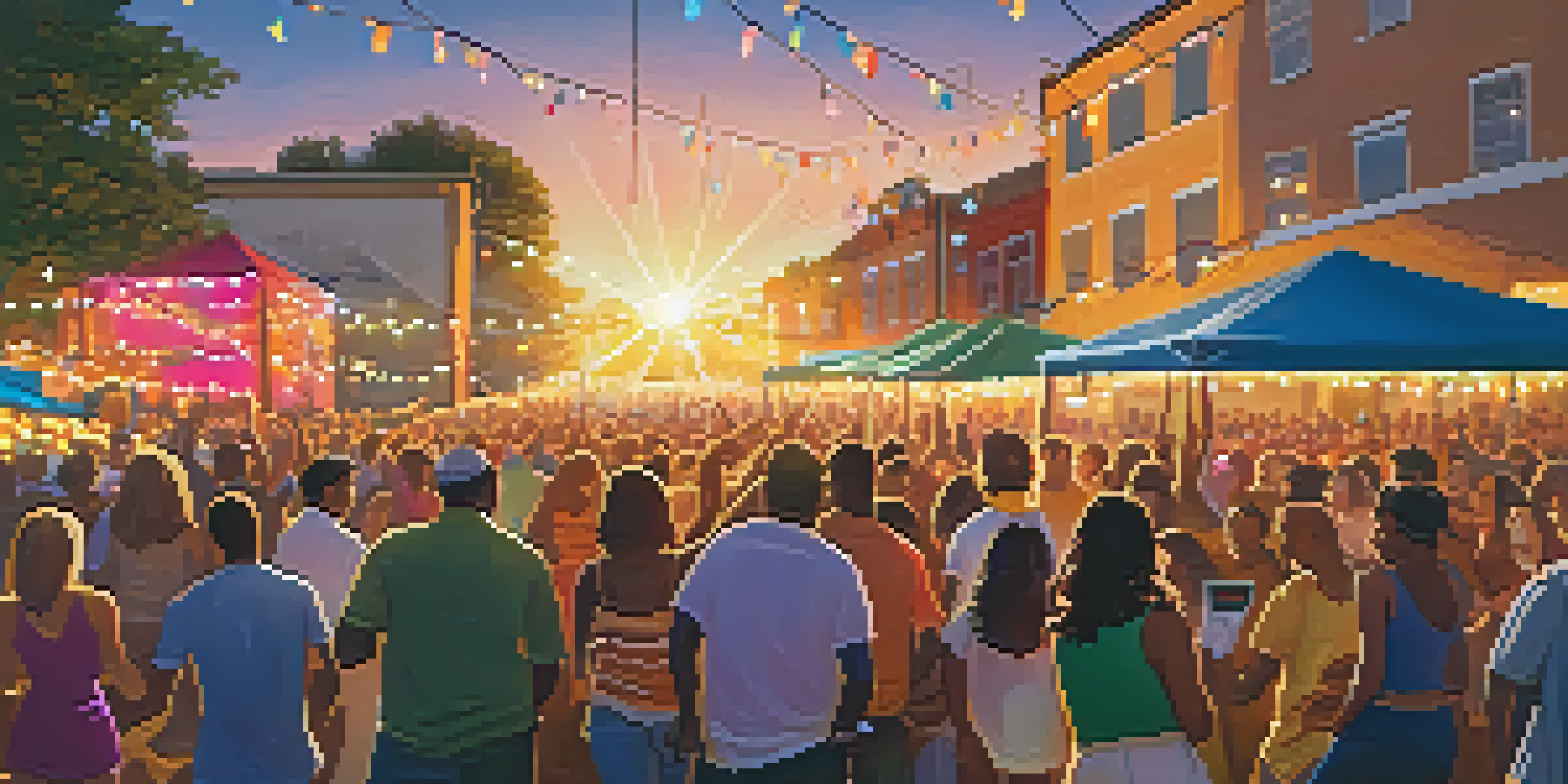The Role of Music in Nonverbal Communication During Events

Understanding Nonverbal Communication in Events
Nonverbal communication encompasses all the ways we convey messages without words, such as body language, facial expressions, and even sounds. At events, these cues play a crucial role in how attendees interpret the atmosphere and engage with one another. Music serves as a powerful nonverbal tool, setting the tone and influencing emotions in a way that words often cannot.
The Emotional Power of Music
Music has an incredible ability to evoke emotions, often instantly connecting with listeners on a deep level. For example, a lively upbeat track can instantly uplift the mood of a gathering, while a slow, melodic piece might encourage reflection and intimacy. This emotional resonance helps forge connections among event participants, enhancing the overall experience.
Music Shapes Event Atmosphere
The choice of music can create a specific atmosphere that aligns with the event's purpose, influencing how attendees feel and interact.
Creating Atmosphere Through Music
The choice of music at an event can create a specific atmosphere that aligns with the event's purpose. For instance, a corporate gala might feature elegant classical music to promote sophistication, while a festival may play lively pop tunes to encourage dancing and celebration. This strategic use of music shapes how attendees feel and interact, amplifying the event's theme.
Music as a Social Connector
Shared musical experiences can foster a sense of community among event attendees. When people enjoy the same songs or genres, it creates common ground that facilitates conversation and interaction. For example, a well-timed sing-along can break the ice and transform strangers into friends, highlighting music's role as a social lubricant in various settings.
Music Connects Attendees Socially
Shared musical experiences foster a sense of community, transforming strangers into friends and enhancing interaction among participants.
Influencing Behavior with Music
Music can significantly influence behavior at events, subtly guiding how guests engage with one another. Studies have shown that fast-paced music can encourage faster movement and higher energy levels, while slower tunes promote relaxation and calm. By understanding these effects, event planners can use music strategically to enhance guest interaction and overall enjoyment.
Cultural Significance of Music in Communication
Different cultures have unique musical traditions that convey specific meanings and emotions. Understanding these cultural nuances is vital when planning events that include diverse audiences. For instance, playing traditional music from a specific culture can evoke pride and belonging, reinforcing the importance of considering attendees' backgrounds in musical choices.
Cultural Nuances Affect Music Choice
Understanding cultural differences in musical interpretation is crucial for event planners to ensure music effectively communicates the intended message.
Challenges in Using Music for Nonverbal Communication
While music can enhance nonverbal communication, it also presents challenges, such as potential misunderstandings. Different people may interpret the same piece of music in various ways based on personal experiences and cultural contexts. Event planners must be mindful of these differences to ensure music serves as an effective communication tool rather than a source of confusion.
Leveraging Music for Event Success
To maximize the impact of music on nonverbal communication, event organizers should carefully curate playlists that align with their objectives. By considering the target audience, event theme, and desired emotional responses, planners can create a sonic environment that enhances engagement and connection. This thoughtful approach helps ensure the event leaves a lasting impression on all who attend.